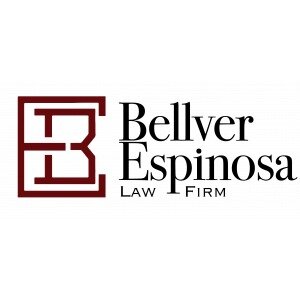Best Labor Law Lawyers in Puerto Rico
Share your needs with us, get contacted by law firms.
Free. Takes 2 min.
Or refine your search by selecting a city:
List of the best lawyers in Puerto Rico
About Labor Law in Puerto Rico
Labor Law in Puerto Rico is designed to govern the relationship between employers and employees, ensuring fair treatment, safety, and justice in the workplace. The laws encompass a wide range of employment-related issues, including wage standards, working conditions, discrimination, and benefits. Unlike many states on the mainland United States, Puerto Rico incorporates both U.S. federal labor laws and unique local statutes that reflect its cultural and economic context.
Why You May Need a Lawyer
There are several common situations where individuals may require legal advice or representation in Labor Law matters:
- Wrongful Termination: If you believe you have been fired or laid off without just cause.
- Discrimination: Experiencing unfair treatment based on race, gender, disability, or other protected characteristics.
- Unpaid Wages or Overtime: If you are not receiving the wages owed to you, including overtime pay.
- Workplace Harassment: Being subjected to a hostile work environment or harassment.
- Disputes over Benefits: Issues regarding health insurance, retirement plans, or other employee benefits.
- Union Issues: Problems related to union representation, organizing, or collective bargaining.
- Safety Violations: Working in conditions that do not meet safety standards.
Local Laws Overview
Puerto Rico has a comprehensive labor law framework combining U.S. federal statutes with local laws, such as:
- Puerto Rico Minimum Wage Act: Puerto Rico sets its own minimum wage which may differ from the federal rate.
- The Puerto Rico Labor Transformation and Flexibility Act (2017): This act introduced significant changes to employment law, affecting areas like probationary periods, vacation accrual, and severance pay.
- Employment Discrimination Laws: Local laws protect against discrimination, supplementing federal protections under Title VII of the Civil Rights Act.
- Working Hours and Overtime: There are specific local regulations regarding daily and weekly working hours and overtime compensation.
- Employee Dismissal Laws: Rules surrounding wrongful termination and "just cause" dismissals.
- Occupational Safety and Health: The Puerto Rico Occupational Safety and Health Administration (PROSHA) enforces workplace safety standards.
Frequently Asked Questions
What is the current minimum wage in Puerto Rico?
The minimum wage in Puerto Rico often aligns with the federal rate but can vary based on certain local laws or industry standards. It's important to check the latest local government updates.
Can I be fired without cause in Puerto Rico?
No, Puerto Rico laws require employers to have "just cause" for termination. Employees dismissed without just cause may be entitled to severance pay.
What constitutes workplace discrimination in Puerto Rico?
Workplace discrimination involves unfavorable treatment based on race, color, religion, sex, national origin, age, or disability. Both local and federal laws prohibit such conduct.
How do I file a complaint about unpaid wages?
You can file a complaint with the Puerto Rico Department of Labor and Human Resources or seek assistance from a labor attorney.
Is maternity leave mandatory in Puerto Rico?
Yes, Puerto Rico law mandates maternity leave for eligible employees, typically consisting of 8 weeks of paid leave.
How is overtime calculated?
Overtime is typically calculated at one and a half times the regular hourly wage for any work beyond 40 hours in a week unless specific conditions apply under local statutes.
Do I need to join a union if my workplace is unionized?
While union membership might be encouraged, mandatory membership depends on the specific agreements in place and relevant trade laws.
What are my rights if I face sexual harassment at work?
You have the right to a safe, harassment-free workplace. Complaints can be filed with your employer, or through governmental bodies like the EEOC or local authorities.
Can I challenge a non-compete clause in Puerto Rico?
Yes, non-compete clauses are subject to scrutiny, and their enforceability can depend on their reasonableness and geographic and temporal scope.
How are labor disputes resolved in Puerto Rico?
Labor disputes can be resolved through negotiation, mediation, arbitration, or litigation through the courts, depending on the nature of the dispute and existing agreements.
Additional Resources
For more information or assistance regarding Labor Law in Puerto Rico, you may consider contacting the following:
- Puerto Rico Department of Labor and Human Resources
- The Equal Employment Opportunity Commission (EEOC)
- Legal Aid Society of Puerto Rico
- Puerto Rico Bar Association
- Local labor unions and workers' rights organizations
Next Steps
If you require legal assistance in Labor Law, here are steps you can follow:
- Document the issue: Keep records of any incidents, communications, and relevant documentation.
- Seek initial guidance: Contact a local labor union or employment rights group for initial advice.
- Consult with a professional: Engage a labor attorney who is familiar with both local and federal labor laws applicable in Puerto Rico.
- Prepare your case: Work with your attorney to gather evidence and prepare for negotiations, mediation, or legal action.
- Pursue formal proceedings if necessary: File complaints with appropriate governmental agencies or proceed with court action if advised.
Understanding labor laws and seeking appropriate legal guidance early can help protect your rights and ensure fair treatment in the workplace.
Lawzana helps you find the best lawyers and law firms in Puerto Rico through a curated and pre-screened list of qualified legal professionals. Our platform offers rankings and detailed profiles of attorneys and law firms, allowing you to compare based on practice areas, including Labor Law, experience, and client feedback.
Each profile includes a description of the firm's areas of practice, client reviews, team members and partners, year of establishment, spoken languages, office locations, contact information, social media presence, and any published articles or resources. Most firms on our platform speak English and are experienced in both local and international legal matters.
Get a quote from top-rated law firms in Puerto Rico — quickly, securely, and without unnecessary hassle.
Disclaimer:
The information provided on this page is for general informational purposes only and does not constitute legal advice. While we strive to ensure the accuracy and relevance of the content, legal information may change over time, and interpretations of the law can vary. You should always consult with a qualified legal professional for advice specific to your situation.
We disclaim all liability for actions taken or not taken based on the content of this page. If you believe any information is incorrect or outdated, please contact us, and we will review and update it where appropriate.
Browse labor law law firms by city in Puerto Rico
Refine your search by selecting a city.









